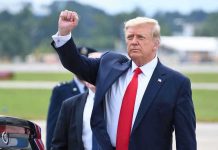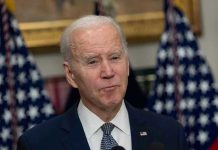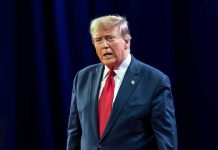
Supreme Court signals deep skepticism of Trump’s tariff authority, and prediction markets are pricing in a stunning 76% probability that the administration will lose its legal battle.
Quick Take
- Prediction markets dropped Trump’s tariff win probability to just 24% following November 5 Supreme Court oral arguments in Learning Resources, Inc. v. Trump
- The Court’s tough questioning revealed serious constitutional concerns about using the International Emergency Economic Powers Act (IEEPA) to justify sweeping tariffs on global trade
- Lower courts already ruled against the administration, finding it exceeded statutory authority under IEEPA, which was designed for targeted sanctions, not broad economic measures
- The outcome will determine whether future presidents can unilaterally impose massive tariffs under emergency powers or whether Congress retains control over trade policy
The Court’s Constitutional Concerns About Executive Overreach
During nearly three hours of oral arguments, Supreme Court justices—particularly Chief Justice Roberts and Justice Barrett—pressed both sides on fundamental questions about presidential power. The skepticism centered on whether IEEPA, enacted in 1977, was ever intended to authorize sweeping tariffs affecting virtually all U.S. trading partners. Solicitor General John Sauer defended the administration’s position, arguing the President possesses broad discretion in national security matters. However, the justices’ pointed questions suggested they found this interpretation troubling from a separation-of-powers perspective.
Legal experts widely agree that IEEPA has historically been used for targeted sanctions against specific countries or entities, not blanket tariffs disrupting global commerce. The administration’s expansion of this authority represents an unprecedented stretch of executive power that lower courts have already rejected. The Supreme Court’s apparent skepticism signals the justices may be preparing to rein in what many conservatives view as dangerous executive overreach—even when pursued by a Republican president.
What’s Really at Stake: Presidential Power vs. Congressional Authority
This case transcends tariff policy; it fundamentally concerns whether the President can bypass Congress to reshape the entire U.S. trade landscape. The Constitution grants Congress explicit power over commerce and taxation. When presidents claim emergency authority to circumvent this constitutional allocation, they erode the checks and balances that protect individual liberty and limit government power. A ruling upholding the tariffs would set a dangerous precedent, allowing future administrations—potentially hostile to conservative values—to invoke emergency powers to impose radical policies without congressional approval.
The administration argues that global trade imbalances constitute a national emergency justifying unilateral action. Critics counter that this reasoning, if accepted, would grant virtually unlimited power to any president willing to declare an emergency. The states and businesses challenging the tariffs rightly emphasize that Congress, not the executive branch, should determine trade policy. This constitutional principle matters more than any single policy outcome.
Economic Reality: Who Bears the Cost of Tariff Uncertainty
Small businesses and importers face genuine economic harm from the tariffs, and the legal uncertainty compounds their problems. Higher costs for imported goods translate directly to increased prices for American consumers and disrupted supply chains for manufacturers. While protectionist trade policies may appeal emotionally, their real-world consequences—inflation, reduced competition, and economic inefficiency—ultimately harm working families. The prediction market’s harsh assessment reflects legitimate concerns about the tariffs’ economic sustainability and legal foundation.
Prediction markets put Trump tariff win at 24% following Supreme Court oral arguments https://t.co/EbZflWctLq
— FOX Business (@FoxBusiness) November 12, 2025
If the Supreme Court strikes down the tariffs, the administration could pursue legitimate trade remedies through proper congressional channels or targeted measures against specific unfair practices. This approach respects constitutional limits while still addressing genuine trade concerns. Conversely, if the Court upholds such expansive executive power, it creates tools that future progressive administrations could weaponize against conservative businesses and industries.
The Path Forward: What Conservatives Should Watch
The Supreme Court’s decision, expected in coming months, will clarify whether IEEPA can justify sweeping economic measures or whether its scope remains limited to targeted sanctions. Justice Kavanaugh appeared somewhat more sympathetic to the administration’s position, suggesting the Court might seek a narrow ruling rather than a sweeping pronouncement on executive power. However, the overall tenor of questioning suggested deep constitutional reservations about the tariff authority claim.
Conservatives should recognize that limiting executive power protects liberty regardless of which party controls the presidency. While supporting strong trade policies and American economic interests, the constitutional architecture matters more than any single policy victory. If this administration loses, it’s not a triumph for globalism—it’s a victory for constitutional governance and the rule of law that ultimately protects all Americans from government overreach.
Sources:
Oral Argument Summary: Learning Resources, Inc. v. Trump (Tariffs)
Court Appears Dubious of Trump’s Tariffs
Breakdown of Supreme Court Oral Argument in the Tariff Cases
Supreme Court Oral Argument Audio
Supreme Court Oral Argument Transcript

















